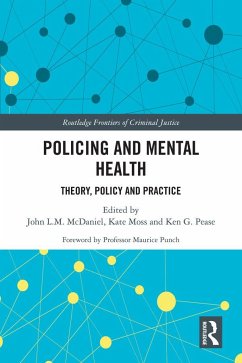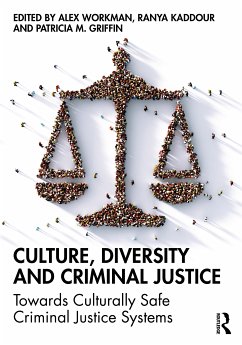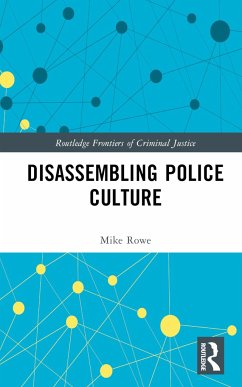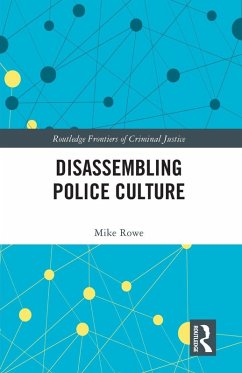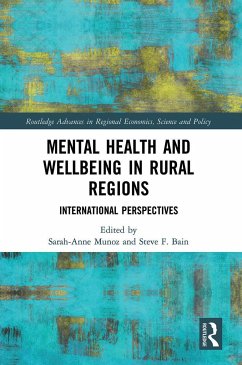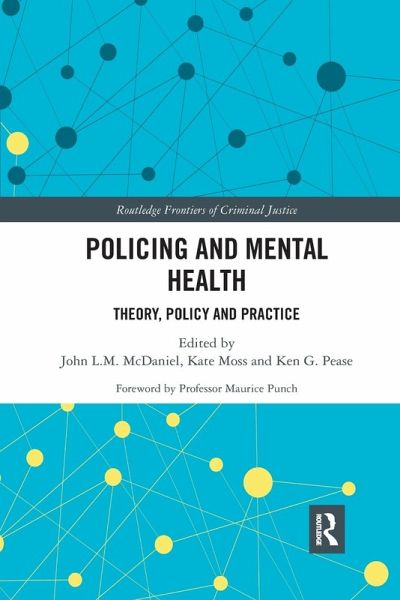
Policing and Mental Health
Theory, Policy and Practice
Herausgegeben: McDaniel, John; Moss, Kate; Pease, Ken
Versandkostenfrei!
Versandfertig in 6-10 Tagen
45,99 €
inkl. MwSt.
Weitere Ausgaben:

PAYBACK Punkte
23 °P sammeln!
This book explores the relationship between policing and mental health. Police services around the world are innovating at pace in order to develop solutions to the problems presented, and popular models are being shared internationally. Nevertheless, disparities and perceptions of unfairness remain commonplace. Innovations remain poorly funded and largely unproven.Drawing together the insights of eminent academics in the UK, the US, Australia and South Africa, the edited collection evaluates the condition of mental health and policing as an interlocked policy area, uncovering and addressing a...
This book explores the relationship between policing and mental health. Police services around the world are innovating at pace in order to develop solutions to the problems presented, and popular models are being shared internationally. Nevertheless, disparities and perceptions of unfairness remain commonplace. Innovations remain poorly funded and largely unproven.
Drawing together the insights of eminent academics in the UK, the US, Australia and South Africa, the edited collection evaluates the condition of mental health and policing as an interlocked policy area, uncovering and addressing a number of key issues which are shaping police responses to mental health. Due to a relative lack of academic texts pertaining to developments in England and Wales, the volume contains a distinct section on relevant policies and practices. It also includes sections on US and Australian approaches, focusing on Crisis Intervention Teams (CITs), Mental Health Intervention Teams (MHITs), stressors and innovations from Boston in the US to Queensland in Australia.
Written in a clear and direct style, this book will appeal to students and scholars in policing, criminology, sociology, mental health, cultural studies, social theory and those interested in learning about the condition and trajectory of police responses to mental health.
Drawing together the insights of eminent academics in the UK, the US, Australia and South Africa, the edited collection evaluates the condition of mental health and policing as an interlocked policy area, uncovering and addressing a number of key issues which are shaping police responses to mental health. Due to a relative lack of academic texts pertaining to developments in England and Wales, the volume contains a distinct section on relevant policies and practices. It also includes sections on US and Australian approaches, focusing on Crisis Intervention Teams (CITs), Mental Health Intervention Teams (MHITs), stressors and innovations from Boston in the US to Queensland in Australia.
Written in a clear and direct style, this book will appeal to students and scholars in policing, criminology, sociology, mental health, cultural studies, social theory and those interested in learning about the condition and trajectory of police responses to mental health.





